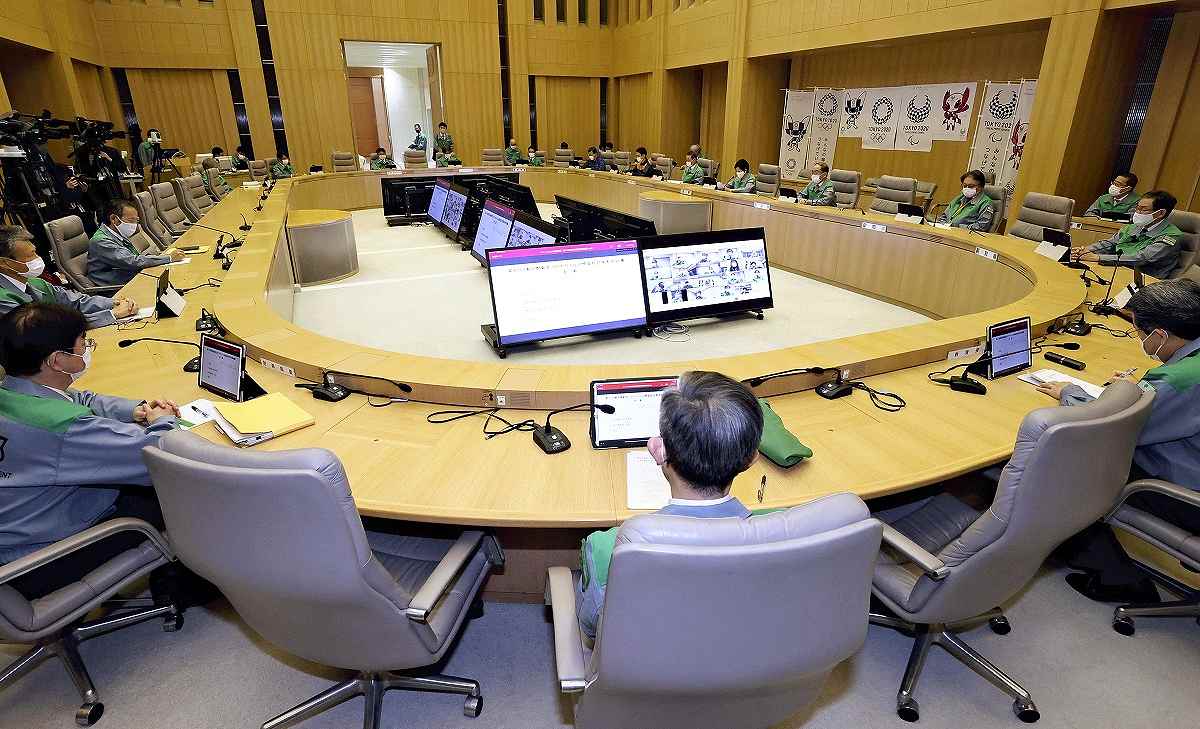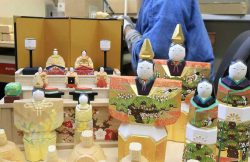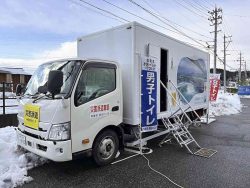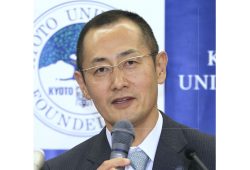
A meeting of the Tokyo metropolitan government’s task force is held at the metropolitan government building in Tokyo on Thursday.
15:52 JST, January 8, 2021
Tokyo and the prefectures of Saitama, Chiba and Kanagawa have stepped up requests for dining establishments and other businesses to shorten operating hours in response to the state of emergency declared on Thursday amid a surge in novel coronavirus infections.
The requests are based on government guidelines that have singled out group dining as a critical issue. Governors of the affected areas will be allowed to publicize the names of businesses that do not shorten business hours, but it remains unclear whether the measures will be effective even if the names of noncomplying businesses are made public.
Bringing forward closing time
“In order to make it through this emergency situation, we must achieve thorough control of the flow of people,” Tokyo Gov. Yuriko Koike said at a meeting of the metropolitan government’s task force on Thursday evening. She asked for full cooperation from businesses and Tokyo residents concerning requests to reduce operating hours and refrain from going out.
Since November, Tokyo had urged restaurants and karaoke bars that serve alcohol to shorten their business hours to 10 p.m.
Shigeru Omi, chairman of the central government’s coronavirus task force, and other experts have repeatedly pointed out the need to bring forward business closing times.
The central government had also unsuccessfully lobbied Tokyo behind the scenes to strengthen its requests for business operators to shorten their operating hours.
Tokyo, which has ramped up requests to shorten business hours since the state of emergency declaration, reported a record 2,447 new daily cases on Thursday.
“Regardless of the declaration, measures should have been strengthened sooner,” a metropolitan government official said, reflecting concerns about Koike’s response.
Article 45 of special measures law
According to an official source, the metropolitan government asked the central government to issue a state of emergency and revise the special measures law to cope with the new strains of influenza to enable local governments to ask dining establishments to shorten opening hours under Article 45 of the law.
The metropolitan government has been requesting shorter hours based on Article 24 of the law, which allows local governments to make such requests even if no state of emergency has been declared. However, the names of noncomplying businesses cannot be disclosed under Article 24.
In contrast, local governments can publicize the names of noncomplying businesses under Article 45 — which can be applied under a state of emergency.
During the state of emergency last year, Koike publicized the names of pachinko parlors that did not comply with closure requests, which prompted some parlors to suspend operations.
Koike intends to use the publication of the names of noncompliant firms as a weapon to increase observance.
In response to calls from Tokyo and other prefectures, the government revised the relevant law to include restaurants among the types of businesses whose names can be publicized if they do not observe requests to shorten business hours.
“The change of legal position due to the state of emergency declaration is significant. I hope that we will be able to curb [the spread of the disease] at all costs,” Koike said at a press conference on Monday.
80,000 small, mid-sized stores
However, there are some obstacles to publicizing the names of businesses.
There are about 80,000 small and medium-sized dining establishments in Tokyo. Saitama Prefecture has about 50,000 restaurants, and Chiba Prefecture, about 45,200.
“As long as the names of restaurants are being made public, we need to ensure that there are no omissions in order to maintain fairness. But it is impossible for metropolitan government officials alone to comprehensively grasp the actual situation of businesses in Tokyo,” an official said.
Kanagawa Prefecture expects about 33,000 restaurants to respond to the request for shorter business hours after the target is expanded to cover the entire prefecture on Tuesday.
“Governors have strong authority, but I really don’t want to go as far as publishing store names,” Kanagawa Gov. Yuji Kuroiwa said, calling for the voluntary cooperation of business operators.
An official of Chiba Prefecture revealed another concern. “Announcing the names of the stores is the same as publicizing the names of businesses that are still operating for those who want to visit them.”
When the names of pachinko parlors were made public during the state of emergency last spring, large numbers of customers visited the businesses.
Top Articles in Society
-

Man Infected with Measles May Have Come in Contact with Many People in Tokyo, Went to Store, Restaurant Around When Symptoms Emerged
-

Woman with Measles Visited Hospital in Tokyo Multiple Times Before Being Diagnosed with Disease
-

Australian Woman Dies After Mishap on Ski Lift in Nagano Prefecture
-

Foreign Snowboarder in Serious Condition After Hanging in Midair from Chairlift in Nagano Prefecture
-

Record-Breaking Snow Cripples Public Transport in Hokkaido; 7,000 People Stay Overnight at New Chitose Airport
JN ACCESS RANKING
-

Japan Institute to Use Domestic Commercial Optical Lattice Clock to Set Japan Standard Time
-

Israeli Ambassador to Japan Speaks about Japan’s Role in the Reconstruction of Gaza
-

Man Infected with Measles May Have Come in Contact with Many People in Tokyo, Went to Store, Restaurant Around When Symptoms Emerged
-

Prudential Life Insurance Plans to Fully Compensate for Damages Caused by Fraudulent Actions Without Waiting for Third-Party Committee Review
-

Woman with Measles Visited Hospital in Tokyo Multiple Times Before Being Diagnosed with Disease
























